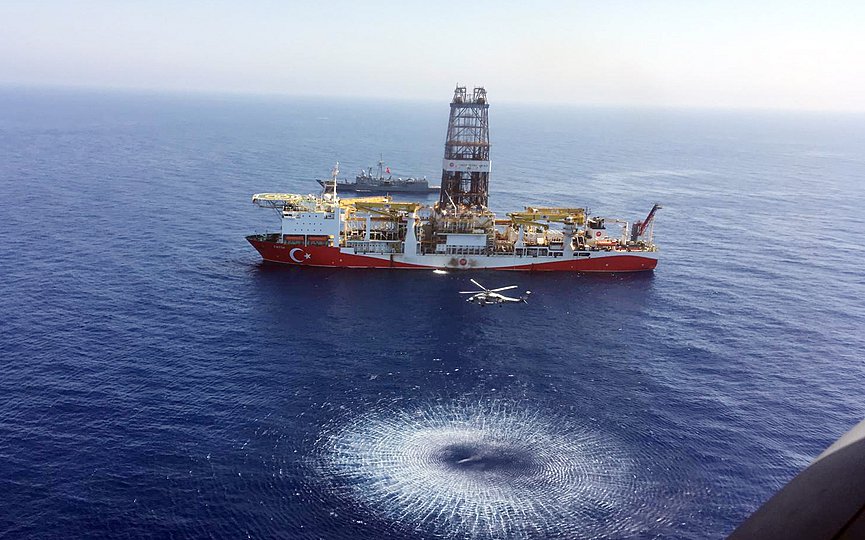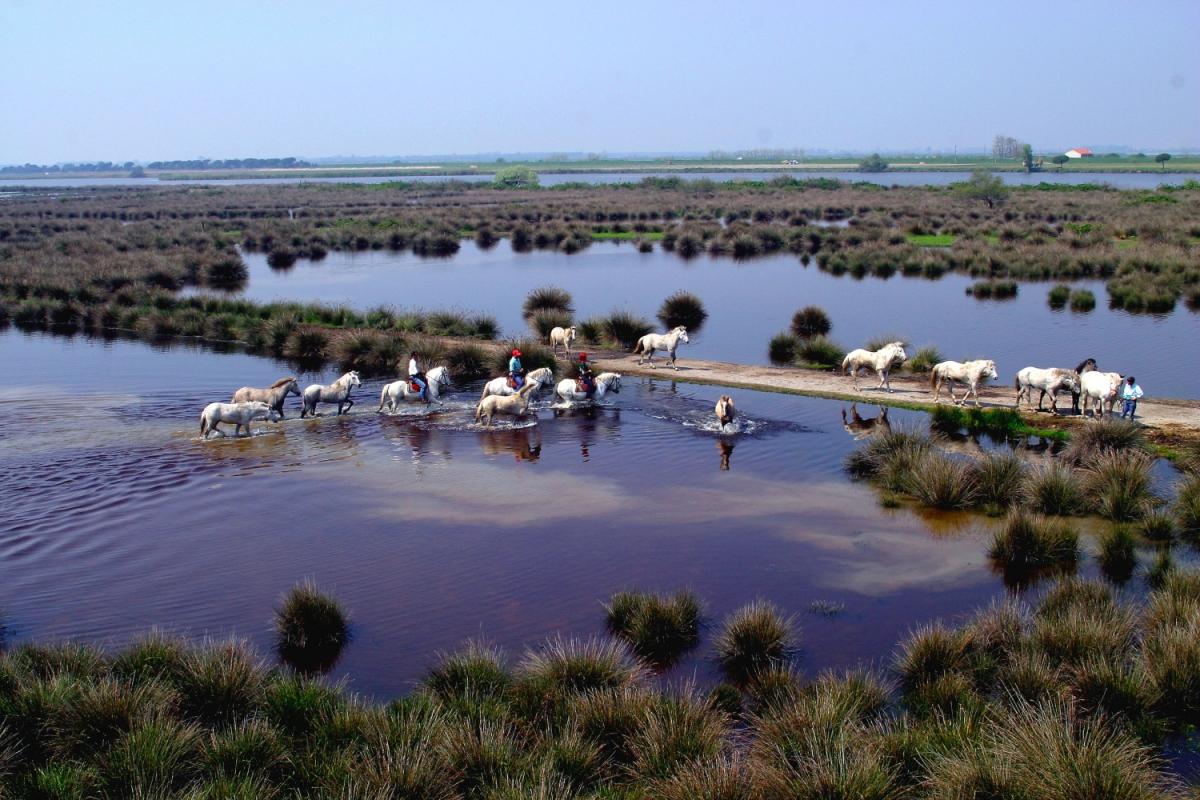The Po Delta
The Po Delta, a sprawling mosaic of lagoons, marshes, and farmland, has been at the center of a historic legal battle. Environmental groups celebrated a major victory when plans for offshore drilling in the region were halted in court, safeguarding the integrity of this UNESCO-designated biosphere reserve. Stretching over 500 square kilometers south of Venice, the Po Delta is one of the largest and most biologically diverse wetland systems in the Mediterranean. The decision is a pivotal step in protecting this delicate ecosystem, which already faces the dual challenges of climate change and subsidence.
The Importance of the Po Delta Ecosystem
The Po Delta is not just a geographical marvel but also a vital ecological hotspot. Its interconnected system of canals, lagoons, and wetlands supports a rich tapestry of life, including numerous endangered species. Migratory birds, fish, and plant species depend on this environment for survival, making it a crucial node in global biodiversity networks.
Partly formed by natural sedimentation from the Po River and partly shaped by centuries of human reclamation efforts, the delta is a testament to the delicate balance between human activity and natural ecosystems. Its unique landscape is characterized by expansive wetlands, fertile agricultural fields, and small fishing villages that dot the area. These features not only make the delta visually stunning but also highlight its role as a living, breathing biosphere.
Offshore Drilling Threatens the Po Delta’s Survival

Despite its ecological significance, the nature-rich Po Delta has faced persistent threats from industrial projects, most recently from proposals for offshore gas extraction. The drilling plans risked further destabilizing the region’s fragile landscape, which is already subsiding due to geological factors and past human interventions.
The Dangers of Offshore Drilling in Fragile Ecosystems
Offshore drilling projects involve extracting oil and gas from beneath the seabed. While this may seem distant from the land, the practice can have profound effects on nearby ecosystems. In the Po Delta, previous gas extraction activities between the 1930s and 1960s led to accelerated subsidence. As gas and salt water were drawn from underground reserves, the land above sank, exacerbating the delta’s natural vulnerability to flooding.
This sinking has left many areas of the delta perilously close to sea level, making them even more susceptible to the impacts of climate change, including rising sea levels and more frequent storm surges. Offshore drilling could have compounded these issues, potentially submerging parts of the delta entirely.
A UNESCO-Designated Biosphere at Risk
The Po Delta’s UNESCO designation underscores its global importance. As a biosphere reserve, it is recognized for its exceptional biodiversity and serves as a model for sustainable development. However, this status has not shielded it from environmental threats.
The Legacy of Past Interventions
The history of the Po Delta is marked by a series of human interventions aimed at reclaiming land and managing water resources. While these efforts have enabled agriculture and settlement, they have also contributed to the region’s current challenges. For example, the extraction of natural gas in the mid-20th century caused significant subsidence, accelerating the process of land loss. Today, the delta continues to grapple with the consequences of these past activities.
Climate Change and Rising Seas
Climate change adds another layer of complexity to the Po Delta’s predicament. Rising sea levels threaten to inundate low-lying areas, while changing weather patterns increase the frequency and intensity of flooding events. Protecting the delta requires not only addressing industrial threats like offshore drilling but also implementing adaptive strategies to mitigate the impacts of climate change.
The Court’s Decisive Ruling
The recent court ruling against offshore drilling in the Po Delta marks a turning point in the fight to protect this nature-rich region. Environmental groups argued that the project would have devastating consequences for the delta’s ecosystems and local communities. The court’s decision reflects growing recognition of the need to prioritize environmental conservation over short-term economic gains.
A Victory for Environmental Advocacy
The victory was the result of tireless efforts by environmental organizations, scientists, and local stakeholders. By presenting evidence of the potential risks posed by drilling, these groups successfully made the case that the project was incompatible with the region’s status as a UNESCO biosphere reserve.
Implications for Future Projects
The ruling sets a precedent for how industrial projects are assessed in environmentally sensitive areas. It sends a clear message that ecological preservation must take precedence, particularly in regions as vulnerable as the Po Delta. This outcome could inspire similar legal challenges in other parts of the world facing comparable threats.
The Cultural and Economic Significance of the Po Delta
Beyond its ecological value, the Po Delta is deeply intertwined with the cultural and economic fabric of the region. Its fertile lands support agriculture, while its waterways sustain traditional fishing practices. Tourism also plays a significant role, with visitors drawn to the delta’s scenic landscapes and rich biodiversity.
Traditional Livelihoods at Stake
Local communities have long relied on the delta for their livelihoods. However, these traditional ways of life are increasingly under threat from environmental changes. Protecting the delta is not just about preserving nature; it’s also about safeguarding the cultural heritage and economic well-being of the people who call this region home.
Sustainable Tourism in the Po Delta
Tourism offers a sustainable alternative to industrial exploitation. Birdwatchers, photographers, and nature enthusiasts flock to the delta to experience its unique landscapes and wildlife. By promoting eco-tourism, the region can generate income while ensuring the long-term health of its ecosystems.
Restoring the Po Delta for Future Generations
The court ruling is a significant victory, but the work of restoring and protecting the nature-rich Po Delta is far from over. Comprehensive conservation strategies are needed to address the challenges of subsidence, climate change, and human impact.
Rewilding and Habitat Restoration

One promising approach is rewilding, which involves allowing natural processes to reclaim areas that have been altered by human activity. In the Po Delta, this could include restoring wetlands and re-establishing natural water flows. Such efforts would enhance the region’s resilience to environmental stressors.
Community-Led Conservation
Engaging local communities is essential for the success of conservation initiatives. Residents of the Po Delta have a deep understanding of their environment, and their involvement can ensure that conservation efforts are both effective and culturally appropriate.
A Global Example of Environmental Justice
The successful defense of the Po Delta against offshore drilling is a powerful example of environmental justice. It demonstrates the importance of holding industries accountable and prioritizing the health of ecosystems over short-term profits. This case also highlights the role of grassroots advocacy in shaping environmental policy.
Lessons for Other Regions
The challenges faced by the Po Delta are not unique. Wetlands and coastal areas around the world are grappling with similar issues, from subsidence to the impacts of climate change. The strategies employed to protect the Po Delta could serve as a blueprint for other regions striving to balance development and conservation.
The Po Delta is a jewel of natural and cultural heritage, and its preservation is crucial for both local communities and global biodiversity. The recent court victory against offshore drilling is a testament to the power of collective action and the importance of prioritizing environmental conservation. As the region continues to face challenges, ongoing efforts will be needed to ensure that this nature-rich Po Delta remains a thriving ecosystem for generations to come







Hi, this is a comment.
To get started with moderating, editing, and deleting comments, please visit the Comments screen in the dashboard.
Commenter avatars come from Gravatar.
купить аккаунт магазин аккаунтов социальных сетей
купить аккаунт продажа аккаунтов
маркетплейс аккаунтов услуги по продаже аккаунтов
биржа аккаунтов продажа аккаунтов
аккаунт для рекламы продажа аккаунтов
аккаунты с балансом маркетплейс аккаунтов соцсетей
маркетплейс для реселлеров биржа аккаунтов
купить аккаунт https://marketplace-akkauntov-top.ru/
магазин аккаунтов социальных сетей маркетплейс аккаунтов
площадка для продажи аккаунтов биржа аккаунтов
услуги по продаже аккаунтов купить аккаунт
маркетплейс аккаунтов магазин аккаунтов
Secure Account Sales Accounts market
Secure Account Sales Guaranteed Accounts
Account trading platform Sell accounts
Buy and Sell Accounts Marketplace for Ready-Made Accounts
Account Trading Platform Account Trading
Account Exchange Service Gaming account marketplace
Accounts marketplace Account Sale
Account market Sell accounts
Website for Buying Accounts Account Buying Platform
Account Catalog Accounts market
social media account marketplace secure account sales
account purchase ready-made accounts for sale
marketplace for ready-made accounts social media account marketplace
buy accounts buy account
account selling service account marketplace
buy accounts sell accounts
gaming account marketplace buy pre-made account
account buying platform account buying platform
online account store database of accounts for sale
online account store account selling service
online account store purchase ready-made accounts
buy account find accounts for sale
ready-made accounts for sale verified accounts for sale
secure account purchasing platform buy-social-accounts.org
sell accounts account trading platform
account market website for buying accounts
account sale account sale
find accounts for sale account exchange service
accounts for sale gaming account marketplace
purchase ready-made accounts https://sale-social-accounts.org/
website for buying accounts account store
ready-made accounts for sale ready-made accounts for sale
buy and sell accounts account sale
website for buying accounts find accounts for sale
account buying service https://accounts-offer.org/
profitable account sales https://accounts-marketplace.xyz
gaming account marketplace https://social-accounts-marketplaces.live/
online account store accounts marketplace
account acquisition https://social-accounts-marketplace.xyz
account acquisition https://buy-accounts.space
account trading service https://buy-accounts-shop.pro
marketplace for ready-made accounts https://buy-accounts.live
marketplace for ready-made accounts https://accounts-marketplace.online/
website for buying accounts buy accounts
sell pre-made account https://accounts-marketplace-best.pro
купить аккаунт akkaunty-na-prodazhu.pro
маркетплейс аккаунтов магазины аккаунтов
купить аккаунт https://kupit-akkaunt.xyz/
маркетплейс аккаунтов соцсетей https://akkaunt-magazin.online/
покупка аккаунтов https://akkaunty-market.live
маркетплейс аккаунтов https://kupit-akkaunty-market.xyz/
магазин аккаунтов https://akkaunty-optom.live/
маркетплейс аккаунтов https://online-akkaunty-magazin.xyz/
продать аккаунт https://akkaunty-dlya-prodazhi.pro
маркетплейс аккаунтов https://kupit-akkaunt.online/
facebook ad account for sale https://buy-adsaccounts.work
buy facebook ad account buy facebook old accounts
buy accounts facebook https://buy-ad-account.top/
buy ad account facebook https://ad-account-buy.top
fb account for sale https://buy-ads-account.work/
facebook accounts to buy https://ad-account-for-sale.top
facebook ads accounts https://ad-accounts-for-sale.work
google ads agency accounts https://buy-ads-account.top/
buy google ads verified account https://buy-ads-accounts.click
buy google ad account google ads account seller
buy adwords account https://ads-account-buy.work
buy adwords account https://buy-ads-invoice-account.top
google ads account seller https://buy-account-ads.work
google ads agency account buy https://buy-ads-agency-account.top/
google ads account buy buy adwords account
buy facebook bm account buy-business-manager.org
buy account google ads google ads agency account buy
buy verified facebook https://buy-bm-account.org
buy verified business manager https://buy-verified-business-manager-account.org/
facebook bm account buy buy-verified-business-manager.org
facebook bm account buy https://buy-business-manager-acc.org/
unlimited bm facebook business-manager-for-sale.org
buy verified bm https://buy-business-manager-verified.org
buy facebook business managers buy-bm.org
buy business manager https://buy-business-manager-accounts.org/
buy tiktok ads account https://buy-tiktok-ads-account.org
buy bm facebook https://verified-business-manager-for-sale.org
buy tiktok ads accounts https://tiktok-ads-account-buy.org
buy tiktok ads https://tiktok-ads-account-for-sale.org
buy tiktok ads https://tiktok-agency-account-for-sale.org
buy tiktok ads accounts https://buy-tiktok-ad-account.org
buy tiktok ads https://buy-tiktok-ads-accounts.org
buy tiktok ads https://tiktok-ads-agency-account.org
tiktok ads account for sale https://buy-tiktok-business-account.org
tiktok ads account for sale https://buy-tiktok-ads.org
Can you be more specific about the content of your article? After reading it, I still have some doubts. Hope you can help me. https://accounts.binance.com/register?ref=P9L9FQKY